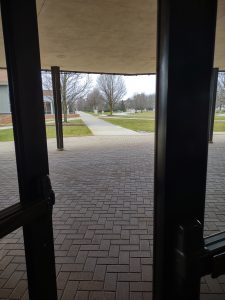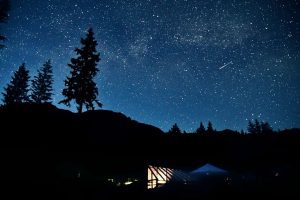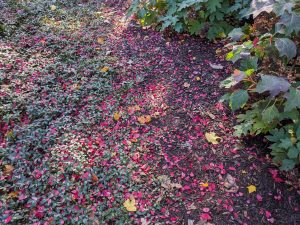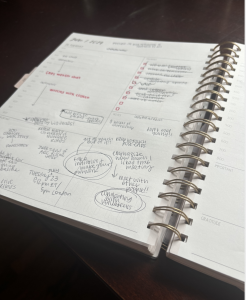 Now that I have over a month of my CAPS fellowship under my belt, it is easy to slip into a routine and let the day-to-day pass by quickly, and without much thought. May and June were a blur of emails back and forth, numerous to-do lists scribbled on Post-it notes, Zoom call meetings, and countless hours of staring at my computer screen. Don’t get me wrong, I am enjoying the work I’m doing and staying busy throughout the long summer days. I enjoy my lists and checking off projects as I complete them. But lately, a little voice in my head has reminded me of the importance of recognizing the small moments of purpose and slowing down before the summer comes to a close.
Now that I have over a month of my CAPS fellowship under my belt, it is easy to slip into a routine and let the day-to-day pass by quickly, and without much thought. May and June were a blur of emails back and forth, numerous to-do lists scribbled on Post-it notes, Zoom call meetings, and countless hours of staring at my computer screen. Don’t get me wrong, I am enjoying the work I’m doing and staying busy throughout the long summer days. I enjoy my lists and checking off projects as I complete them. But lately, a little voice in my head has reminded me of the importance of recognizing the small moments of purpose and slowing down before the summer comes to a close.
Recently, I am grateful to have had two distinct moments that have not only forced me to slow down and reflect but also that have reminded me of my purpose and calling. I had the privilege of attending the June Point of Contact meeting for the IU Health/American Red Cross Alliance in place of my supervisor, Colleen. These monthly meetings bring together the points of contact for the IU Health hospitals that are in the Red Cross Alliance to share upcoming volunteer opportunities and stay in the loop of everything going on. This meeting was my first touchpoint with other members of the Alliance, and it allowed me to see the bigger picture of the work I am doing. I realized that the projects I’d been assigned to (an updated informational packet for the volunteers and a summer newsletter) were going to be distributed to all these hospitals and make a tangible impact on volunteers, both new and old. Being able to speak in the meeting and give updates both on what I was working on and what my supervisor told me to report, gave me a sense of purpose and importance that I was so desperately craving. The work I was doing mattered, and this moment solidified that reminder for me. Working remotely, it is hard to see the larger picture and the ripple effects that the work I’m doing has, so attending this meeting and feeling more ‘in-the-know’ gave me a brief yet tangible glimpse of the greater IU Health and American Red Cross Alliance.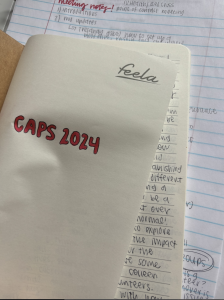
The other moment occurred during my first meeting with my alumni mentor, Caroline. I wasn’t sure what to expect going into my call with Caroline, who is living on the other side of the world in London, working for a non-profit. However, the hour-long conversation I had with Caroline was vital in giving me clarity. I was honest with Caroline about how I was feeling and the lack of purpose I had been experiencing. She spoke the words I needed to hear, and I furiously scribbled in my planner next to me, soaking up every word (see picture). Caroline reminded me that at the end of the day, this is my internship, and I need to advocate for myself to have the experiences I want to have. She also encouraged me to lean into the parts of the internship that I did enjoy and to create more opportunities for myself. I had mentioned to her just how much I enjoyed the Point of Contact meeting and connecting with other people, and Caroline told me to continue to foster those connections and take the initiative to attend more of these meetings or even meet with these people individually. She told me about her own experiences with CAPS and the workforce and how oftentimes she has created her own work, which is more often than not encouraged and supported by a supervisor. Overall, Caroline reminded me that my purpose can be in my own hands, and I don’t have to just sit around and wait for it to come along. I can play an active role in shaping it how I want it to be.
Reflecting on these two experiences, I can now say that sometimes purpose is not always crystal clear and handed to you on a silver platter. Rather, it shows up in small, unexpected ways that surprisingly are sustainable to keep you going, even if the work feels repetitive or useless. Those moments can be easily overlooked, so I’ve begun to truly revere the importance of pausing, taking a step back, and looking at the bigger picture. Journaling frequently throughout the CAPS process has been especially helpful, as it has forced me to not only recount my experiences but look back and see how they’ve shaped me and my purpose. I can read back my entries and see just how far I’ve come and how the purpose I’ve recognized and shaped has evolved throughout the summer so far. I am so grateful for the small moments that have become significant in developing who I am and why I’m here. I’m looking forward to the rest of the summer, the work I’ll do, and the little moments of purpose to come!
- Grace Roberts, American Red Cross
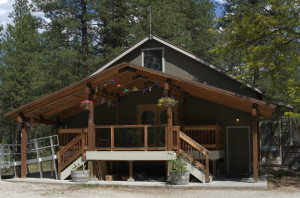 Curiosity killed the cat is a saying that I have heard throughout my child and young adult life. While it may be true in some situations, the age old saying takes away from what I believe to be one of humanities’ main functions, and that is to explore the unexplored.
Curiosity killed the cat is a saying that I have heard throughout my child and young adult life. While it may be true in some situations, the age old saying takes away from what I believe to be one of humanities’ main functions, and that is to explore the unexplored.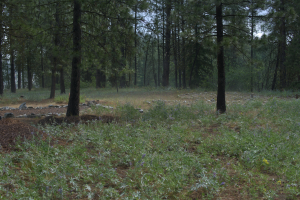
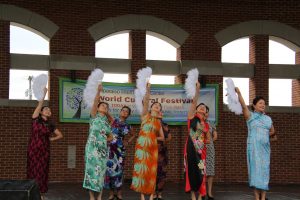
 The easiest way to get to 1841 North Laramie Ave from Austin, Chicago by 10 AM every weekday without a car is to take the Green Line at Austin via Ashland/63rd, get off at Laramie & Lake, then take bus 57 towards Grand/Latrobe and get off at Laramie & Bloomingdale. In theory, this journey should only take about 33 minutes: a 5-minute walk to the station, a 12-minute train ride to Laramie & Lake, a 14-minute bus ride to Laramie & Bloomingdale, and a 2-minute walk north towards the building, meaning I could leave my house at 9:20 AM.
The easiest way to get to 1841 North Laramie Ave from Austin, Chicago by 10 AM every weekday without a car is to take the Green Line at Austin via Ashland/63rd, get off at Laramie & Lake, then take bus 57 towards Grand/Latrobe and get off at Laramie & Bloomingdale. In theory, this journey should only take about 33 minutes: a 5-minute walk to the station, a 12-minute train ride to Laramie & Lake, a 14-minute bus ride to Laramie & Bloomingdale, and a 2-minute walk north towards the building, meaning I could leave my house at 9:20 AM.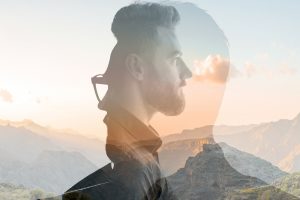 For my second blog in two weeks, I was really struggling to find an experience that I did not touch on the week before this. As I was reflecting on my summer, already at the halfway point of this experience with Jacob’s Ladder and the CAPS Fellowship, I was thinking about what is a lesson I have learned.
For my second blog in two weeks, I was really struggling to find an experience that I did not touch on the week before this. As I was reflecting on my summer, already at the halfway point of this experience with Jacob’s Ladder and the CAPS Fellowship, I was thinking about what is a lesson I have learned.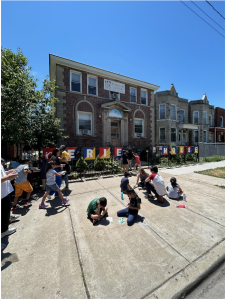

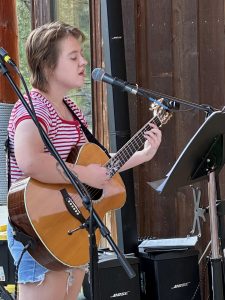
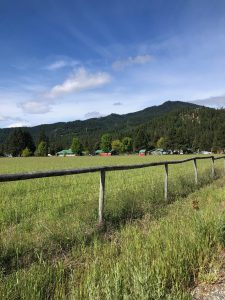
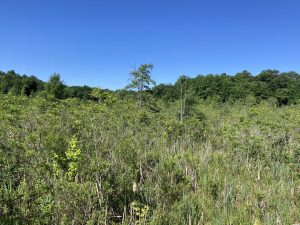
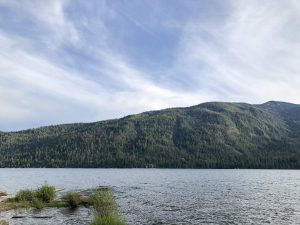
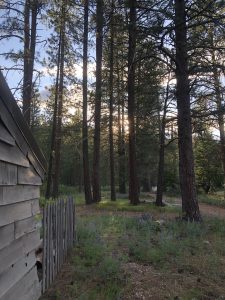
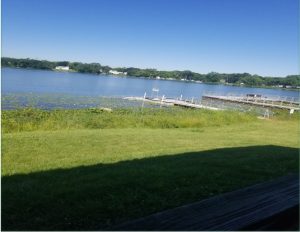 While the camp season has only just begun, I have had many different opportunities to fulfill my duties of collecting the necessary data for the camp. One of the biggest skills that I have used in the short time that I have been here is the art of creative productivity. In my position of direct observational research, that often means spending a lot of my day, directly or indirectly, interacting with campers. This has meant that, on multiple occasions throughout my week, I am often jumping in on games of “duck, duck, goose”, hanging out at the archery range, or even taking an afternoon boat ride around the lake.
While the camp season has only just begun, I have had many different opportunities to fulfill my duties of collecting the necessary data for the camp. One of the biggest skills that I have used in the short time that I have been here is the art of creative productivity. In my position of direct observational research, that often means spending a lot of my day, directly or indirectly, interacting with campers. This has meant that, on multiple occasions throughout my week, I am often jumping in on games of “duck, duck, goose”, hanging out at the archery range, or even taking an afternoon boat ride around the lake. 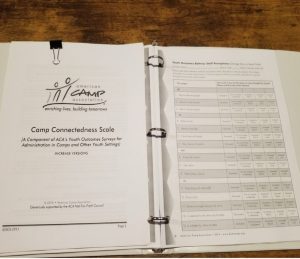
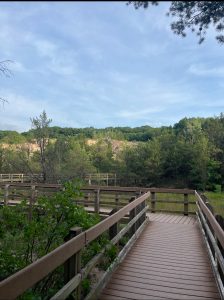 hoved in a drawer, a hair tie that had been long abandoned, maybe a water bottle that had been forgotten during a quick departure. It is apparent to anyone who works in the Barker House that I don’t usually sit at my desk, and that’s something that I’m quite proud of. Let me explain.
hoved in a drawer, a hair tie that had been long abandoned, maybe a water bottle that had been forgotten during a quick departure. It is apparent to anyone who works in the Barker House that I don’t usually sit at my desk, and that’s something that I’m quite proud of. Let me explain.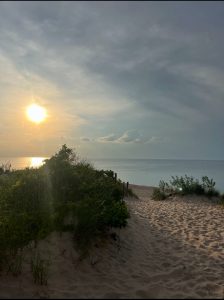

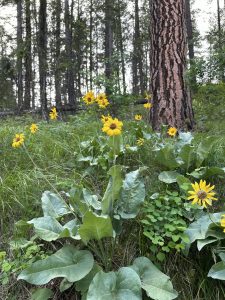
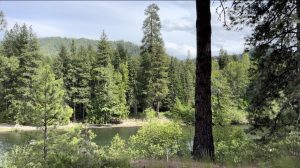
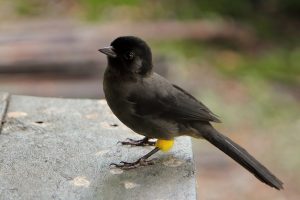
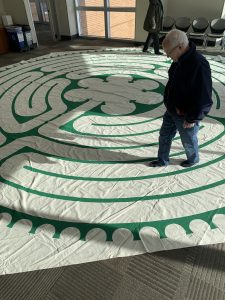 When I was a Valpo student, vocation was often discussed in my circles as being the place where one’s “deep gladness and the world’s deep hunger meet.” This is a classic statement from
When I was a Valpo student, vocation was often discussed in my circles as being the place where one’s “deep gladness and the world’s deep hunger meet.” This is a classic statement from 